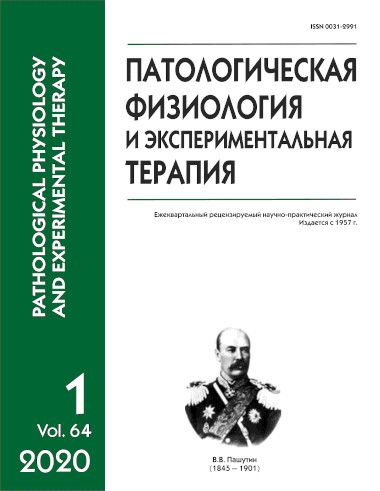M3 macrophages stop division of prostate cell from a patient with prostate cancer
Abstract
Macrophages play an important role in the development of prostate cancer (PCa). Many tumors, including PCa, secrete anti-inflammatory cytokines that reprogram the M1 macrophage phenotype into the pro-tumor M2 phenotype. M2 macrophages suppress antitumor immunity and promote division and metastasis of tumor cells. We hypothesized that the division of human PCa cells may be restricted by a specific M3 macrophage phenotype. The M3 phenotype, in contrast to the M1 phenotype, responds to antiinflammatory cytokines by increasing the production of inflammatory anti-tumor cytokines and retains its anti-tumor properties in the tumor area. The aim of the study was to test the hypothesis on the ability of M3 macrophages to stop division of prostate cells from patients with PCa. Methods. This study used murine macrophages isolated from the peritoneal lavage and human macrophages obtained from blood monocytes of patients with PCa. The M3 macrophage phenotype was obtained by adding IFN-γ, STAT3, STAT6, and SMAD3 inhibitors to the cultural medium followed by lipopolysaccharide (LPS) stimulation. Results. Murine and human M3 macrophages restricted the division of patients’ PCa cells in the conditions of 2D cultivation by 43% and 93%, respectively. In 3D cultivation, murine M3 macrophages did not restrict whereas human M3 macrophages only slightly limited the division of prostate cells from PCa patients. The results of the study warrant further research and development of a clinical biotechnology for PCa treatment with reprogrammed M3 macrophages.






